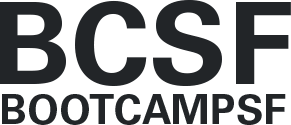In the fitness world, protein powders are marketed as the fast track to “defined muscles” and a “quick recovery”. It seems like everyone is walking around with a blender bottle. Have you ever found yourself wondering if a protein powder is something you should be drinking too?
Do we really need these powdery drinks?
Here are 3 questions to ask yourself before you jump on the protein powder bandwagon:
1. Do you get approx. 20g/ protein per meal?
We all need protein in our diet. Protein helps maintain lean muscle, improves metabolism, supports immunity, provides energy and generally improves our overall well being. Clearly, it’s an important nutrient. The amount we need varies from person to person, depending on our age, weight and activity level. However, most grown, active adults tend to need about 20-30 grams of protein per meal (1).
Ideally, we would get all this protein from a variety of whole foods. Foods like fish, meats, nuts, seeds and legumes are all protein sources. Even vegetables contain a small amount.
However, if you start to take a look at your diet and notice that most of your meals only contain 10 or 15 grams of protein, then you might want to consider supplementing your diet with a protein powder.
(Don’t know how much protein your food has? We love nutritiondata.com to look up the amount of protein in common foods)
2. Do you have smoothies as meal replacements?
If you drink a smoothie in place of a meal (like having a green smoothie for breakfast) it’s important to make sure that your smoothie has a good balance of protein, fats and carbohydrates. While you can add protein by adding nuts and seeds, it can take up to 1 whole cup of almonds to reach 20 grams of protein (2). Adding a scoop of protein powder is a convenient way to ensure your smoothie is a balanced meal.
3. Do you workout without having a meal or snack 2 hours before or 2 hours after?
If you don’t snack between meals and you’re active, you might end up going more than 4-5 hours without eating around your workout. (For example if you wake up at 6am and workout but don’t eat breakfast until 10am. Or if you eat lunch at 1pm, workout at 5pm but don’t eat dinner until 7pm). Studies show that a good snack or meal after an intense workout really does benefit our performance and recovery (and how we build muscle and burn fat) (3).
If you can’t get around to eating a meal after your workout, a protein powder shake is an easy and convenient way to provide your body with the nutrients it needs.
Again, ideally we would be getting all the protein we need from whole foods like fish, meats, nuts and seeds.
And many of us do just that!
However, if you answered yes to one or more of the questions above, then adding a protein supplement might be for you.
But before you go pick up a tub of muscle milk…all protein powders are NOT created equal. There are some that are great and some that do more harm than good. Here are some guidelines to help you choose the best brand for you:
How to choose a protein powder
1. Look at the label and ingredients: How many calories and protein does it have per serving? Look for about 16-22 grams of protein per servings and between 100-150 calories. Also, take a close look at the ingredients. If there are more than 10 ingredients, it’s a bad sign. Most high quality protein powders just have the protein (whey, hemp, pea) and 3-4 other ingredients.
2. Look for “cold processed”, “undenatured” or “raw” : The problem with cheap protein powders is that they are usually heated and processed at such high temperatures, that the protein molecules become damaged. These can make protein powders hard to digest and can be a big waste of money. (This is particularly important for whey protein which is especially sensitive to heat).
3. Remember, it’s like a serving of food: A good way to think about protein powder is as a serving of protein! It’s worth spending an extra $10-20 on higher quality product.
Resources:
1. http://www.ncbi.nlm.nih.gov/pubmed/22150425
2. http://nutritiondata.self.com/facts/nut-and-seed-products/3085/2
3. http://www.precisionnutrition.com/about-post-workout-nutrition
